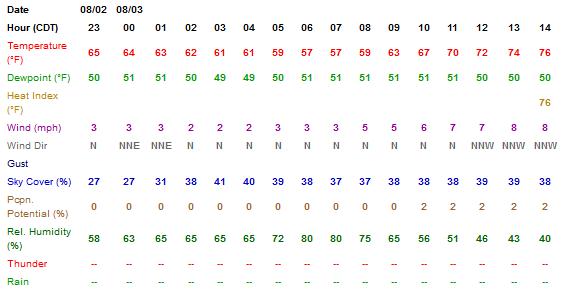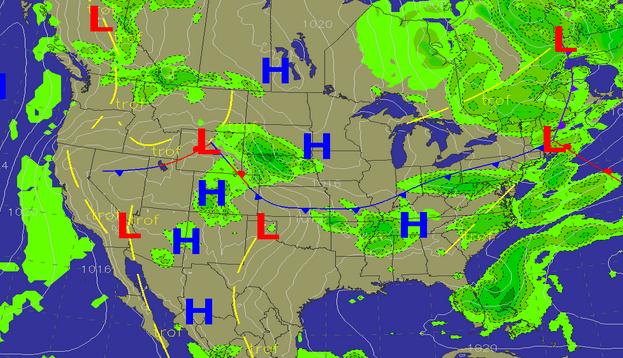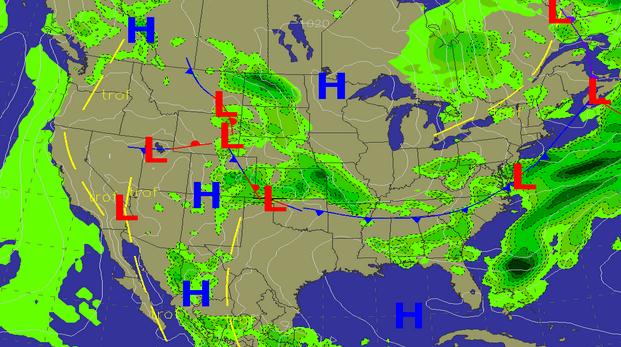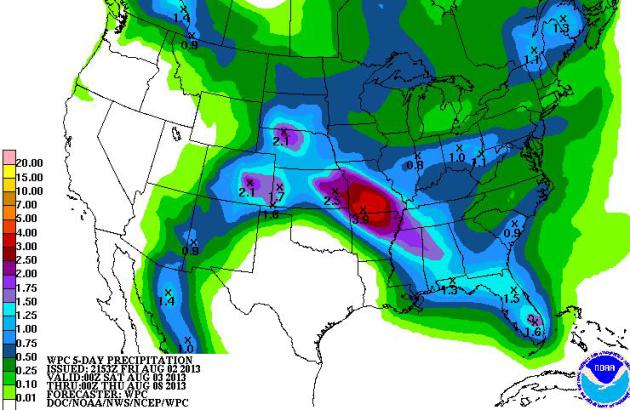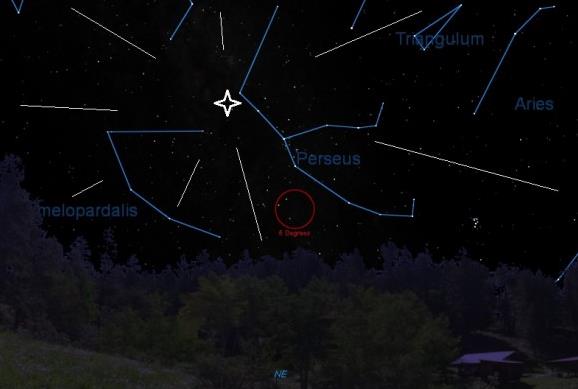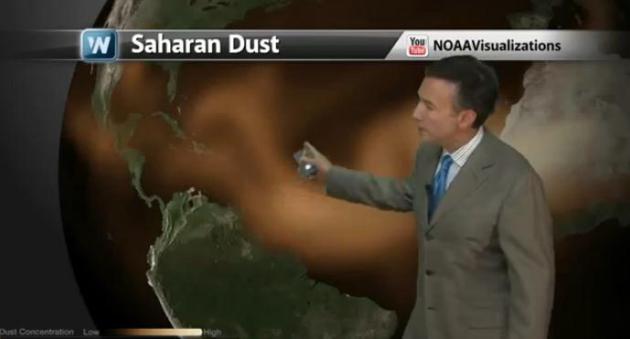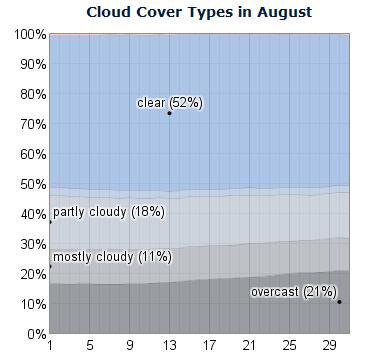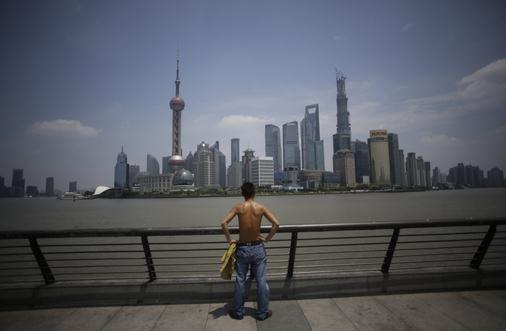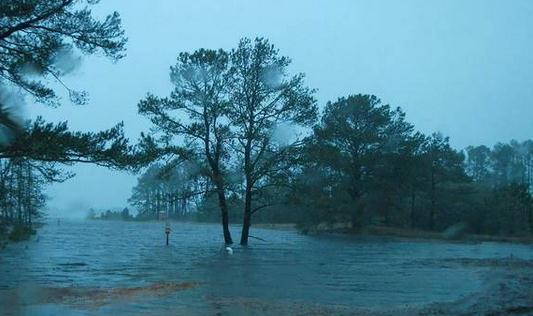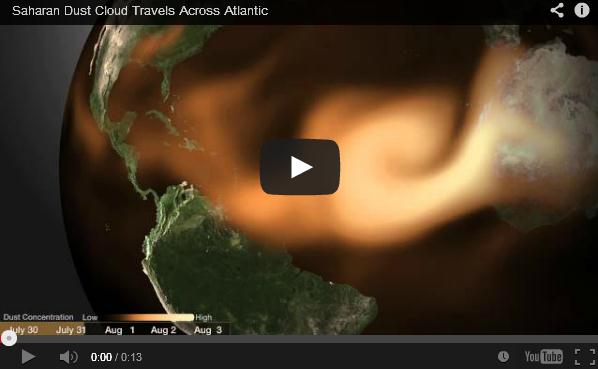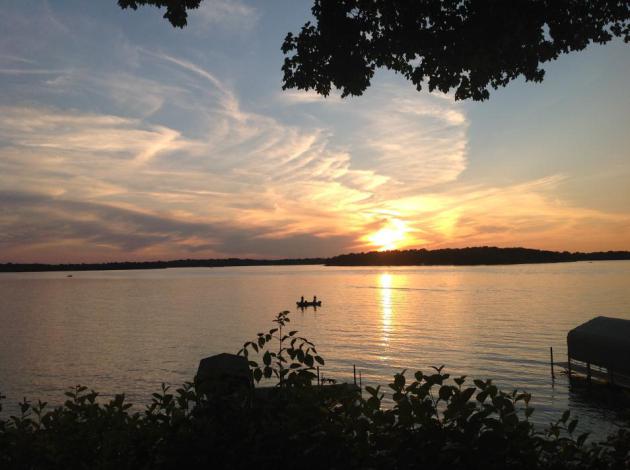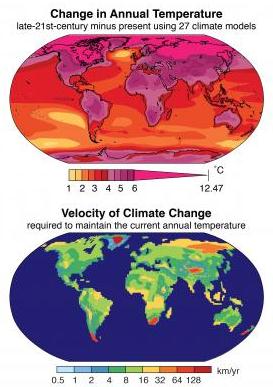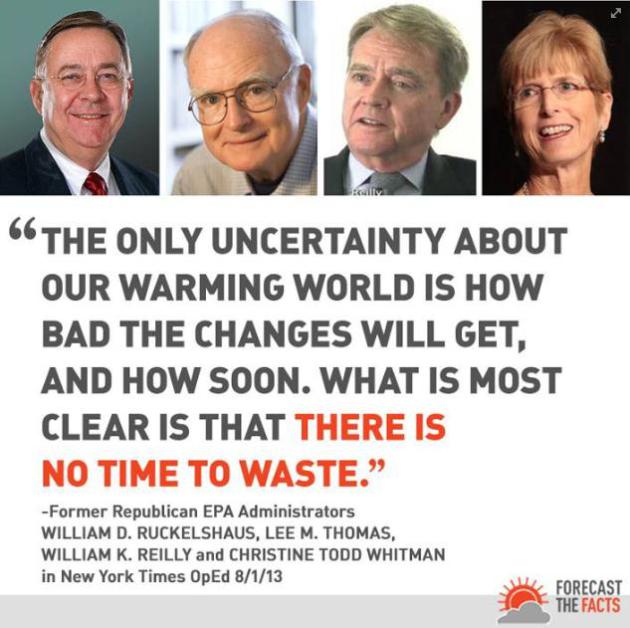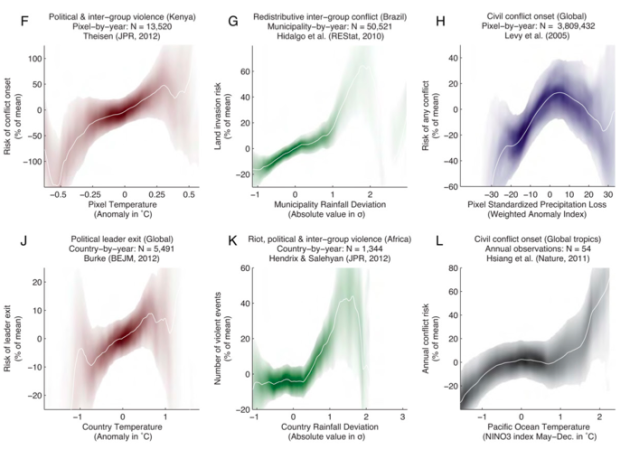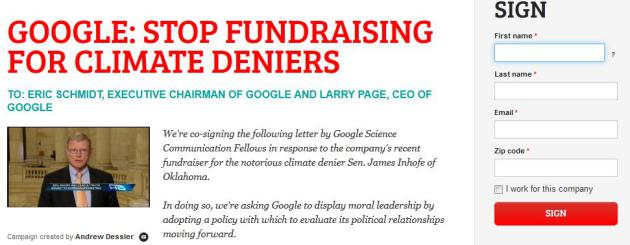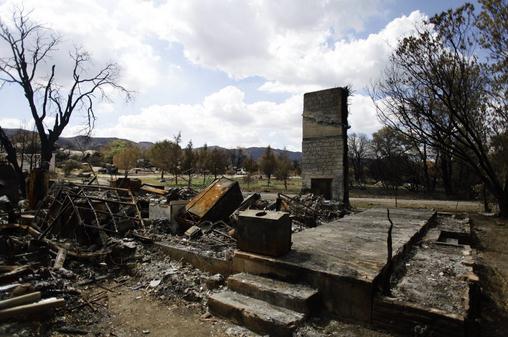Dog Day-free August?
I get some of my best weather nuggets at the
local Caribou drive-thru. "Thanks for this weather Paul" the nice lady
preparing my caffeine injection sighs. I shrug. "You're welcome?" She
goes on to regale me with tales of low humidity and fresh breezes
keeping the bug count down. "My relatives are haying right now - they
sure don't miss the heat and humidity!" Nor do I.
Greenland just hit a record 80F, parts of China
are embroiled in the worst heat in 140 years. No, I'm not mourning the
Dog Days either.
The maps suggest two Septembers in a row, Canada
burping one comfortable airmass after another into mid-August. Beyond
that the crystal ball gets murky, but as my favorite college meteorology
professor liked to say, "don't fight the trends."
A reinforcing pulse of cool air arrives today on
a north breeze, highs in the 70s with a dew point near 50F. Typical for
September 6. A T-shower may pop Sunday PM into Tuesday; a more vigorous
cool front next Friday, when "highs" may hold in the 60s up north.
Skies clear and mellow the weekend of August
10-11; highs push into the 70s. Think of this as "Summer Lite" - without
all the unpleasant (sticky, biting, thundery) side effects.
Ideal Conditions For Tour de Tonka. Every now and then the planets align and the weather cooperates for a big outdoor event. Such will be the case today for
Tour de Tonka
- blue sky, low humidity, just enough of a breeze to keep you from
breaking out into a sweat. When you consider we could be broiling in the
90s or dodging severe T-storms, there shouldn't be too many complaints
about the weather.
Good Day For A Bike Ride (Or Race). Here is NOAA's
hour by hour forecast
for the west metro, showing temperatures rising through the upper 50s
and 60s, reaching 70F by 11 AM, a light north breeze at 5-12 mph, dew
points near 51F.
Back To The 70s. 90s? Are you kidding? Not a Dog Day
in sight, in fact 80s may be rare in the weeks ahead, a slight chance
of topping 80F by Tuesday. The best chance of showers and T-showers:
Sunday night into Tuesday. Long-range ECMWF guidance is hinting at more
showers next weekend.
Weather Map: Midday Today. The soggy remains of
"Dorian" may brush Florida with a few heavy T-storms, but the heaviest
rains remain offshore. Showers and T-storms are likely from the Ohio
Valley and Mid South into South Dakota, cool, comfortable air over the
Great Lakes and Upper Midwest. Map credit: UCAR.
Weather Map: Sunday Morning. The approach of
slightly warmer air will set off a healthy smear of showers and storms
across the Dakotas, reaching the Twin Cities late Sunday or Sunday
night. A holding pattern continues, showers and T-storms flaring up
along a virtually stationary fron stretching from the Plains to the
Carolinas.
Atmospheric Scuffle. NOAA HPC prints out a big,
sloppy bulls-eye over Missouri and northern Arkansas, where 3-5" rains
are possible by Thursday. Meanwhile the western USA remains dry;
conditions very favorable for more wildfires in the weeks to come.
First Perseids Of 2013.
Spaceweather.com
has a great update on the biggest meteor shower of the year. With
unusually clear skies, good visibility and low dew points you may have a
better chance that most (Augusts) to see a few lucky shooting stars in
the next 1-2 weeks. Here's an excerpt: "
Earth is entering
a broad stream of debris from comet
109P/Swift-Tuttle, source of the annual Perseid meteor shower.
Although the shower won't peak until
August 12-13, when Earth hits the densest
part of the stream, the first Perseids are already
arriving. "Despite poor weather over our network of meteor cameras,
we have detected six Perseid fireballs
since July 30th," reports Bill Cooke,
head of NASA's Meteoroid Environment Office. He
made this plot showing the orbits of the meteoroids."
Graphic credit above: "
In the diagram, the green lines
trace the orbits of Perseid meteoroids.
All six intersect Earth (the blue dot).
The orbit of the parent comet is
color-coded purple. An inset shows one of the
fireballs shining almost as brightly as the Moon:
video."
Dorian's Remnants, Saharan Dust, And Record Heat In Alaska, Greenland, The U.K. And China.
Talk about a mixed-up weather map; I guess we should be counting our
atmospheric blessings. Much of the southern and western USA continues to
bake, unusual warmth reaching unusually far north, but the heating is
anything but uniform. In today's edition of
Climate Matters
we track the soggy remains of "Dorian", link African dust to fewer
tropical storms, and highlight some of the more unusual warm weather
records: "
Dorian is brushing the eastern coast of Florida, but other
than that the Atlantic is pretty quiet. Could it have anything to do
with Saharan Dust? Then there are the heat records where you might
least it expect it. WeatherNation Chief Meteorologist shows us where
the warmth is around the globe. Pop Quiz: Which one of the following
three cities was the warmest Thursday? Fairbanks, Los Angeles or New
York City. Watch the video and see if you're right."
August Cloud Cover. Here's another snippet from a comprehensive look at August climatology in the Twin Cities, courtesy of
WeatherSpark. Yes, August tends to be (much) sunnier and drier than June and July, better odds of getting your outdoor events in: "
The
fraction of time spent in each of the five sky cover categories. From
top (most blue) to bottom (most gray), the categories are clear, mostly
clear, partly cloudy, mostly cloudy, and overcast. Pink indicates
missing data. Outside of the United States clear skies are often
reported ambiguously, leading them to be lumped in with the missing
data."
Worst Heat Wave In At Least 140 Years Hits Parts Of China; Dozens Of Deaths Reported. Here are a few excerpts from an AP story at
Fox News: "...
On
Tuesday, the director of the China Meteorological Administration
activated a "level 2" emergency response to the persistent heat wave.
This level requires around-the-clock staffing, the establishment of an
emergency command center and frequent briefings. Some Chinese in
heat-stricken cities have been cooking shrimps, eggs and bacon in
skillets placed directly on manhole covers or on road pavement that has
in some cases heated up to 60 degrees C (140 F)...In the port city of
Ningbo in Zhejiang province, glass has cracked in the heat, vehicles
have self-combusted, and a highway billboard caught fire by itself,
sending up black smoke in the air, according to China Central
Television. The broadcaster said the heat might have shorted an
electrical circuit on the billboard..."
File photo credit above: "
A visitor who has his top off
tries to cool off in the afternoon heat at the Bund, one of the most
popular tourist spots in the city, in Shanhai, China." (AP Photo/Eugene Hoshiko).
Rethinking Flood Insurance As Toll Rises. Because in
light of the trends: more numerous, extreme (and expensive) flooding
disasters, the current model may be unsustainable. Here's the intro to
an Op-Ed at
livescience.com: "
As
society looks toward a future with rising sea levels and more
frequent and severe storms, the United States can also expect to see
more frequent and severe flooding along rivers and coastlines. That
means property owners will increasingly turn to the Federal Emergency
Management Agency (FEMA) and its National Flood Insurance Program to
bail them out. But why does the federal government underwrite 5.6
million flood insurance policies — in many cases at highly subsidized
rates?..."
Photo credit above: "The
storm surge from Hurricane Sandy leaves much of Chincoteague National
Wildlife Refuge in Maryland under water, including this boat ramp along
the Assateague Channel, on Monday, Oct. 29, 2012." Credit: J.Fair/USFWS.
South America Might Soon Be Covered In Thousands Of Tons Of Dust From The Sahara Desert. Dust which may be reducing the odds of hurricane formation over the Atlantic, btw.
Quartz has the story (and amazing NOAA visualization); here's a clip: "
In
the next couple of days, South Americans could get a taste of Africa
without even stepping on a plane. That’s because powerful winds over
the continent are lifting up thousands of tons of dust from the Sahara
Desert, and moving it 5,000-or-so miles over the Atlantic Ocean toward
northern Brazil, Venezuela, Colombia and other places around the
Caribbean Sea. The great migration of desert granules is in fact a
“quite common” occurrence, according to NOAA,
raising the startling thought that the dust in our eyes on a windy day
could’ve once been stuck in a camel’s foot pad. This most recent
movement of grit is somewhat special, though, in that it’s much more
concentrated than usual. By Friday and the weekend, it will be flying
over South and Central America, with urban areas in its possible path
including Caracas, Bogotá, Panama City, Port-au-Prince, and San Juan in
Puerto Rico..."
Workplace Bullies Target The Unattractive. So this is why so many people are picking on me at work. And it's my company! The nerve. Here's an excerpt from an article at
The Wall Street Journal: "
More
evidence that there’s little difference between the office and a high
school cafeteria: workplace bullies tend to pick on colleagues who are
considered unattractive, according to a new study. Researchers Timothy
Judge of the University of Notre Dame in Indiana and Brent Scott of
Michigan State University surveyed 114 workers at a health-care
facility to find out how often coworkers bullied them. Bullying was
defined as acting rudely, teasing or saying hurtful statements.
Separately, other participants viewed digital photos of the health-care
workers, grading their attractiveness. Workers whose photos were graded
as unattractive tended to be more likely to have reported being
subjected to rude or even cruel treatment by coworkers, said Dr. Judge..." (Image credit
here).
Climate Stories....
America's Dangerous Pipelines. Generating
electricity comes with inherent levels of risk (with the possible
exception of solar and photo voltaic). In the ongoing controversy over
the proposed Keystone XL Pipeline I thought I'd share this video
animation and explanation from
The Center For Biological Diversity. is the upside worth the risk? "
This
time-lapse video shows pipeline incidents from 1986 to 2013, relying
on publicly available data from the federal Pipeline and Hazardous
Materials Safety Administration. Only incidents classified as
“significant” by the agency are shown in the video. “Significant”
incidents include those in which someone was hospitalized or killed,
damages amounted to more than $50,000, more than 5 barrels of highly
volatile substances or 50 barrels of other liquid were released, or
where the liquid exploded or burned. According to the data,
since 1986 there have been nearly 8,000 incidents (nearly 300 per year
on average), resulting in more than 500 deaths (red dots on the
video), more than 2,300 injuries (yellow dots on the video), and
nearly $7 billion in damage. Since 1986 pipeline accidents have spilled
an average of 76,000 barrels per year or more than 3 million gallons.
This is equivalent to 200 barrels every day..."
Data Source: U.S. Department of Transportation Pipeline and Hazardous Materials Safety Administration.
Climate Change Occurring 10 Times Faster Than At Any Time In Past 65 Million Years.
Phys.org has the story - here's a clip: "
The
planet is undergoing one of the largest changes in climate since the
dinosaurs went extinct. But what might be even more troubling for
humans, plants and animals is the speed of the change. Stanford climate
scientists warn that the likely rate of change over the next century
will be at least 10 times quicker than any climate shift in the past 65
million years. If the trend continues at its current rapid pace, it will
place significant stress on terrestrial ecosystems around the world,
and many species will need to make behavioral, evolutionary or
geographic adaptations to survive..."
Graphic credit above: "
Top: The change in annual
temperature projected for the late 21st century using simulations from
27 global climate models. The change is calculated as the 2081-2100 mean
minus the 1986-2005 mean. Bottom: the velocity of climate change
required to maintain the current annual temperature should the
late-21st-century climate change occur. The velocity is calculated for
each location by identifying the closest location in the future climate
that has the same annual temperature as the starting location has in the
present climate." Credit: Noah Diffenbaugh.
Climate Change Becoming A Defining Issue For Young Voters Nationwide.
Huffington Post has the details; here's an excerpt: "
The
politics of climate change is shifting, and politicians --
particularly Republicans -- are going to need to make some quick
decisions. Whether it's record heat waves, wildfires, floods or storms,
the impacts of climate change are taking hold nearly every day. Our way
of life is being violently transformed, and Americans are taking
notice, especially younger voters whose future is at stake. And this
could have a big impact at the ballot box. LCV recently released a bipartisan poll
showing that young voters across the country are concerned about
climate change and support federal action to address it. It also showed
that young people soundly reject the false choice between economic
prosperity and action on climate change that many climate change deniers
hide behind. And a solid majority in our poll said they are willing to
hold accountable those who ignore the problem, going so far as to
describe climate change deniers as "ignorant" and "out-of-touch." In
fact, 73 percent of young voters said they are less likely to vote for
someone who opposes President Obama's landmark plan on climate change..."
Image courtesy of
Forecast The Facts.
Top: The change in
annual temperature projected for the late 21st century using simulations
from 27 global climate models. The change is calculated as the
2081-2100 mean minus the 1986-2005 mean. Bottom: The velocity of climate
change required to maintain the current annual temperature should the
late-21st-century climate change occur. The velocity is calculated for
each location by identifying the closest location in the future climate
that has the same annual temperature as the starting location has in
the present climate. Credit: Noah Diffenbaugh
Read more at:
http://phys.org/news/2013-08-climate-faster-million-years.html#jCp
The planet is
undergoing one of the largest changes in climate since the dinosaurs
went extinct. But what might be even more troubling for humans, plants
and animals is the speed of the change. Stanford climate scientists warn
that the likely rate of change over the next century will be at least
10 times quicker than any climate shift in the past 65 million years.
Read more at:
http://phys.org/news/2013-08-climate-faster-million-years.html#jCp
The planet is
undergoing one of the largest changes in climate since the dinosaurs
went extinct. But what might be even more troubling for humans, plants
and animals is the speed of the change. Stanford climate scientists warn
that the likely rate of change over the next century will be at least
10 times quicker than any climate shift in the past 65 million years.
Read more at:
http://phys.org/news/2013-08-climate-faster-million-years.html#jC. Here's a clip from an AP story at
Newser.com: "
As
the world gets warmer, people are more likely to get hot under the
collar, scientists say. A massive new study finds that aggressive acts
like committing violent crimes and waging war become more likely with
each added degree. Researchers analyzed 60 studies on historic empire
collapses, recent wars, violent crime rates in the United States, lab
simulations that tested police decisions on when to shoot and even
cases where pitchers threw deliberately at batters in baseball. They
found a common thread over centuries: Extreme weather _ very hot or dry
_ means more violence. The authors say the results show strong evidence
that climate can promote conflict. "When the weather gets bad we tend
to be more willing to hurt other people," said economist Solomon Hsiang
of the University of California, Berkeley. He is the lead author of
the study, published online Thursday by the journal Science. Experts in
the causes of war gave it a mixed reception..."
Hotter Weather Actually Makes Us Want To Kill Each Other. Here's a slightly different perspective on the new research finding from
The Atlantic: "
Farmers
in Brazil are more likely to invade each others' land in years that
are particularly wet or unusually dry. Americans honk their horns more
at other cars when it's hot outside. Countries in the tropics are
more likely to have civil wars in years that are especially hot or dry.
They may seem random, but actually, these events are all connected. New
research from Princeton University and UC Berkeley published today in
Science reveals a link between big shifts in climate and
precipitation and a rise in interpersonal violence, institutional
breakdown, and especially inter-group violence, such as war. Not
only does the paper shed light on past bouts of global conflict, it
also offers a warning about the future. The world is expected to
warm by at least 2 degrees Celsius over the next few decades, unless
governments do something drastic, and the researchers say that
increased bloodshed could be a serious side-effect of that trend..."
Consider Signing The Petition. Details on Google's recent fund-raiser for James Inhofe and an online petition can be found
here.
GOP Lawmakers Hit By Weather Tragedies Stay Mum On Climate Change.
InsideClimate News has the story - here's a clip: "..."
I've
lived in my part of Arizona my whole life," Grijalva, 65, said in an
interview. "I've never seen conditions like the ones we've had the last
few years. Watching my constituents deal with the effects of climate
change—the droughts, the record temperatures, the fires—how could I not
make it a priority?" In the district next door to Grijalva's, however,
the message being conveyed is far different. That area, represented by Paul Gosar,
a Republican, is experiencing similar climate extremes. But Gosar
rejects the scientific consensus that carbon dioxide from burning fossil
fuel and other human activities are causing the earth to warm. And he
sees no connection between climate change and the extreme weather
raging in his home district—including the Yarnell wildfire,
which claimed the lives of 19 firefighters in June—according to his
spokesman, Orlando Watson. Gosar has voted against all climate-related
legislation in the past few years..."
Photo credit above: "
A home destroyed by the Yarnell Hill
fire late last month, in Yarnell, Ariz., July 23, 2013. In Yarnell,
where 19 members of the Granite Mountain Hotshots died in the line of
duty and where the homes destroyed by fire sit next to those
mysteriously spared, residents struggle to ascribe meaning to what
happened." (Joshua Lott/The New York Times).
McCarthy: Climate Change Is "Opportunity Of A Lifetime".
National Geographic has more on the new EPA Administrator's goals and objectives; here's an excerpt: “
Let’s talk about this as an opportunity of a lifetime, because there are too many lifetimes at stake,” McCarthy said of regulating emissions, noting the EPA will work to develop a “new mindset about
how climate change and environmental protection fits within our
national and global economic agenda.” Although the EPA has met some
opposition from industry groups and Republicans who say environmental
regulation hurts the economy, McCarthy said she planned to continue issuing new rules and felt President Barack Obama’s new Climate Action Plan could “fuel the complementary goals of turning America into a magnet for new jobs and manufacturing...”
It's Climate Scientists, Not Concern Trolls, Who Champion The Scientific Method. Here's an excerpt from a post at
The Guardian: "...
Concern
trolling, constantly getting the science wrong, and ignoring the
inconvenient data all stem from the same root cause - ideological
opposition to climate solutions. No matter how much effort you put into
pleasing contrarians, they are not going to be part of the solution;
certainly not soon enough to help us avoid high-risk climate change.
But they're also a small fringe minority. We don't need everyone to be
on board, just enough to create the necessary support behind climate
solutions. Pandering to ABC concern troll contrarians is wasted time
that would be better spent communicating climate change risks to truly
open minded skeptical people. Elevating contrarians with false praise
for accepting that the moon isn't made of cheese certainly isn't going
to help solve the problem."


